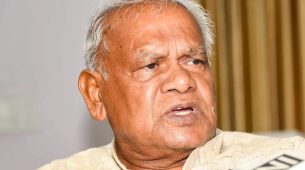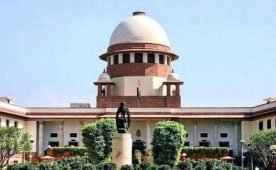#Implantfiles: In Us, Ortho Major Forced To Admit It Was Corrupting Doctors And Hospitals In India indianexpress.com
INDUCEMENTS TO doctors, dubious deals with hospitals. If these are the hallmarks of the big unregulated medical bazaar in India, a rare case involving a global major has put a figure to it.
Advertising
In a filing two months ago, the top financial regulator in the USA, the Securities and Exchange Commission (SEC), ordered the world’s leading manufacturer of orthopaedic implant devices, Stryker, to pay $7.8 million (over Rs 55 crore) in settlement for violating its corruption norms in India, China and Kuwait, documents accessed by The Indian Express reveal.
The settlement, recorded by the SEC on September 28, came after the Commission’s “accounting and audit enforcement” proceedings noted a number of “violations” by the company’s Indian subsidiary and its dealers. These “violations” include questionable payments to doctors for “consulting fees, travel, and other benefits” and “inflated invoices” issued to “mostly large, corporate hospitals”.
#ImplantFiles: On US blacklist, in India they are in the grey zone
US SEC filing on Sept 28: ‘Documentation appeared falsifed’
And that’s not all. In 2012, the anti-monopoly regulator, Competition Commission of India (CCI), fined an authorised distributor of Stryker India and two other firms Rs 3 crore for allegedly rigging bids, manipulating tenders and forming a cartel to sell equipment to the All India Institute of Medical Sciences (AIIMS) and Safdarjung Hospital, two of the largest government hospitals.
Advertising
In its scrutiny of Stryker’s India operations, including the findings of internal audits between 2010 and 2015, the US SEC concluded: “Payments intended to benefit HCPs (Health Care Providers) also lacked sufficient documentation, such as consulting fees paid to doctors without adequate explanation of the doctors’ consulting services or hours billed, and payments for HCP travel with documentation that appeared falsified…
“Additionally, the forensic review found missing or inaccurate documentation for numerous other transactions flagged as high-risk, including expenses related to consulting fees, travel, and other benefits to health-care professionals in India.”
YOU MIGHT LIKE
01:27
The significance of Kartarpur Sahib corridor: News in Numbers
The US regulator’s severe indictment of Stryker’s India operations is one of the most startling findings to emerge from the Implant Files investigation by The Indian Express and the International Consortium of Investigative Journalists (ICIJ) on the medical bazaar, where pharma majors hardsell their products without any regulation via a dubious nexus with hospitals and doctors.
Stryker India has four offices in the country — Delhi NCR, Mumbai, Chennai and Kolkata — and an annual turnover of Rs 300 crore in FY 2017-18, mainly from selling hip and knee implants, and medical devices for spine and neuro surgeries. The US-based parent company has a market cap of $58.87 billion with operations spread across 100 countries covering Asia, Europe, Africa and Latin America.
POPULAR PHOTOS
Hockey World Cup 2018 opens to a glittering ceremony by SRK, Madhuri Dixit, AR Rahman
Creed 2: Michael B Jordan dons the gloves for another round
IBPS Clerk admit card released, download at ibps.in
Dubious deals with hospitals
Private hospitals that “requested inflated invoices from dealers profited from their purchase of Stryker orthopaedic products by passing on the higher (invoiced) prices to their patients or their patients’ insurers, even as the hospitals paid the lower prices previously negotiated with Stryker India to Stryker India’s dealers”, the US SEC found.
#ImplantFiles: In US, ortho major forced to admit it was corrupting doctors and hospitals in India
In doing so, the SEC said, the dealers “allowed these private hospitals to gain a windfall from passing on the higher (invoiced) prices to their patients or their insurance companies”.
Linking Stryker to these deals, the regulator said: “Stryker India authorized these dealer transactions only after Stryker India’s management negotiated and approved the price that the hospitals would pay to the dealers. Thus, in determining the price charged to dealers, Stryker India’s management and the dealers specifically negotiated the profit margin such dealers would stand to earn based on the difference between what hospitals paid the dealers and what the dealers paid Stryker India.”
SEC records do not identify the dealers involved. But documents maintained by CCI show that it had fined PES Installations, an authorised distributor, and two other firms, MDD Medical System and Medical Product Services (MPS), Rs 3 crore in April 2012 for a number of alleged irregularities in sale of equipment to AIIMS and Safdarjung Hospital, both in Delhi.
Read: Transgenders under the scalpel in top hospitals & shady clinics
Responding to a questionnaire from The Indian Express on the SEC findings, Stryker said in a statement: “We are committed to working with our customers to make healthcare better while operating ethically and in compliance with all applicable laws and regulations.”
The US SEC, meanwhile, found a number of similar violations in Stryker’s operations in China and Kuwait, too. According to the SEC, it took into consideration “Stryker’s cooperation and remedial acts undertaken” while deciding to accept the company’s settlement offer to be paid “within 14 days”.
#ImplantFiles: In US, ortho major forced to admit it was corrupting doctors and hospitals in India
Unlike in India, the US has robust anti-corruption checks in place with the Foreign Corrupt Practices Act (FCPA), enacted in 1977, prohibiting the payment of bribes to foreign officials to assist in obtaining or retaining business, and mandating companies “to maintain accurate books and records”. In Stryker’s case, the SEC decided on a settlement after issuing a “cease-and-desist” offer to the company.
WHAT THE US REGULATOR FOUND
Inadequate oversight of dealers
* In 2012, in response to allegations of misconduct concerning Stryker India’s dealers, Stryker exercised its audit rights over three dealers in India. Those audits revealed insufficiencies in the financial record-keeping and internal accounting controls of all three dealers. Additionally, Stryker identified suspicious expenses by one dealer and instances of another dealer over-billing a hospital upon the hospital’s request. While Stryker took some corrective actions in response to these audits, including terminating one of the three dealers, the actions were limited to the three dealers audited.
* (The) deficiencies violated Stryker India’s agreements with its dealers. Specifically, the deficiencies in dealers’ financial record-keeping violated dealers’ obligation to “maintain complete and accurate records relating to [their] promotion, marketing, use and distribution of [Stryker] Products,” and the over-billing violated Stryker’s business conduct policy prohibiting participation in any improper payments. Despite the red flags raised during the 2012 audits, and numerous complaints reported to Stryker of dealer misconduct, Stryker did not act to determine the scope of dealer-inflated invoices until 2015.
* In 2015, Stryker performed audits of other dealers in India. The audits revealed that the practice of Stryker India’s dealers inflating invoices for the sale of Stryker orthopaedic products to certain private hospitals — an improper practice identified three years earlier in connection with the 2012 audits — had become more widespread.
Lack of accurate books, records
* From 2010 through 2015, Stryker India failed to make and keep complete and accurate books and records that reflected its transactions and disposition of assets. In particular, Stryker India recorded potentially problematic payments to its dealers and to HCPs, some of which lacked any supporting documentation reflecting a clear business purpose.
* A forensic review of Stryker India’s general ledger for the period 2010 through 2015 found a complete lack of documentation for 144 out of 533 transactions selected as a sample of Stryker India’s highest-risk and most compliance-sensitive accounts.
* During the period of 2010 through 2015, Stryker was unable to provide any documentation for 27% of sampled high-risk transactions on Stryker India’s general ledger.







Leave Your Comment